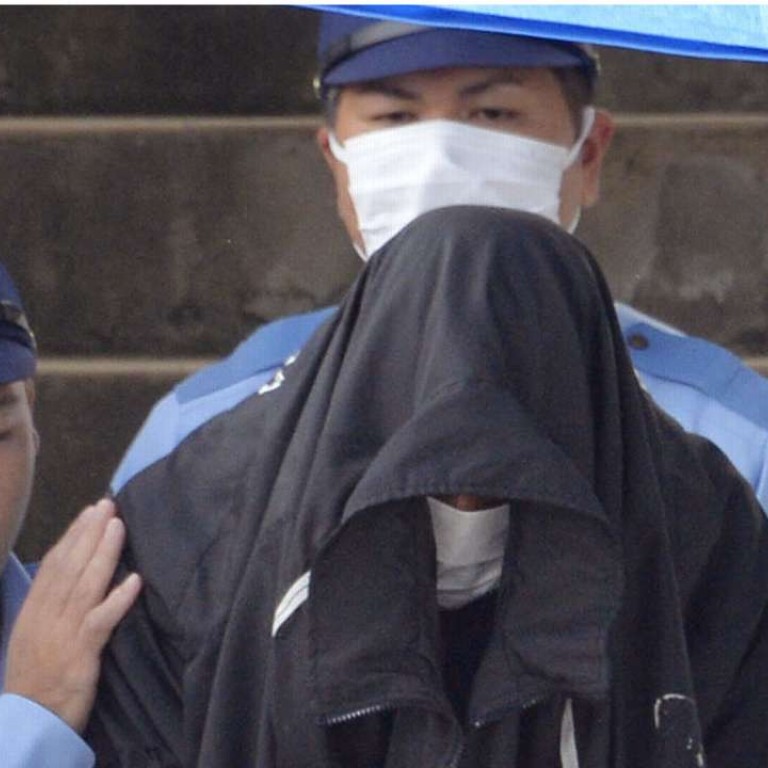
Japan, US agree on limiting legal protection for American civilian workers
Pact comes amid US base worker’s demand to shift his murder trial from Okinawa to Tokyo
Washington said it will limit legal protections and benefits to some US civilian contractors working for the military in Japan in a bid to assuage local anger following the killing of a Japanese woman on Okinawa island.
Japan and the United States agreed on Tuesday to tighten eligibility for the US-Japan Status of Forces Agreement (SOFA) signed in 1960, which sets out the legal status of US bases and military personnel working in Japan.
Under certain cases, such as actions committed during official duty, it protects personnel from being pursued by Japanese courts.
“This will without doubt reduce the number of civilian contractors covered by the agreement,” Japan’s Minister of Foreign Affairs Fumio Kishida said in Tokyo.
This will without doubt reduce the number of civilian contractors covered by the agreement
Kishida spoke after he and Japan’s Minister of Defence General Nakatani met with US Ambassador Caroline Kennedy and US Air Force Lieutenant General John Dolan, commander of US forces in Japan.
SOFA also exempts personnel from requiring visas while in Japan, and has been criticised because it has been used by the US military to ship people home before capture by the Japanese police. Civilian contractors are typically included under the agreement, which gives them access to housing benefits and other benefits that can represent a substantial chunk of their income.
The US and Japan said on Tuesday that US contractors with Japanese visas will no longer qualify and that talks will continue to define which contractors will still be included under SOFA in future.
However, a 32-year-old American civilian working at a US Okinawa base, Kenneth Franklin Shinzato, who was arrested in May in connection with the killing of a local woman, Rina Shimabukuro, was included under the status agreement despite holding a Japanese visa.
The defence lawyer of Kenneth Franklin Shinzato demanded on Monday that the trial be moved to Tokyo, saying it is unlikely a fair trial can be held in Okinawa due to strong anti-US base sentiment there. The trial is set to take place in the Naha District Court, and under a lay judge system in which three professional and six lay judges will hear the case.
Shinzato’s lawyer Toshimitsu Takaesu told a press conference that the former US marine wants his trial transferred to the Tokyo District Court.
Okinawa residents’ feelings “have been entrenched by animosity”, said a petition submitted to the Naha court, which referred to the fact that the Okinawa prefectural and many local municipal assemblies have adopted resolutions protesting the crimes committed by Shinzato.
It is feared that local people selected to serve as lay judges may not be impartial and influenced by a prejudgement that Shinzato should be punished severely, the petition for a change of venue said.
The case has sparked public outrage in Okinawa, which hosts the bulk of US military facilities in Japan, prompting tens of thousands of residents to attend a massive rally last month.
Takaesu also said he will seek a psychiatric examination of Shinzato, as the US base worker may have a psychiatric problem judging from the content of the crime.
According to the indictment, Shinzato is suspected of hitting the woman on the head with a bar on a road in Uruma in central Okinawa, strangling and stabbing her with a knife around 10pm on April 28.
Although Shinzato assaulted the woman in order to rape her, he killed her as a result of the violence, it said.
The killing in Okinawa and subsequent arrests of military personnel for drink driving have dented local relations and spurred large demonstrations calling for the removal of US bases threatening to halt plans to relocate some Marine units away from populated areas of the island to more remote bases.
Okinawa hosts 50,000 US nationals, including 30,000 military personnel and civilians employed at US bases. The site of the bloodiest fighting between US and Japanese forces in second world war. Okinawa remained under American occupation until 1972, with around a fifth of the land area still under US military control.
Additional reporting by Kyodo

